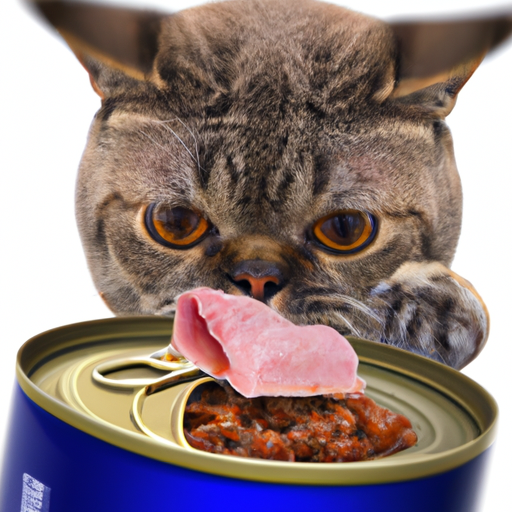Bulldogs are known for their love of food, and they will pretty much eat anything you put in front of them. So, can they eat peanuts?
The answer is yes and no. Technically, Bulldogs can eat peanuts, but it is not recommended as part of their diet. Peanuts contain a lot of fat and sugar, which can lead to weight gain and other health problems for Bulldogs. If you do decided to give your Bulldog a peanut, make sure it is unsalted and raw.
Bulldogs and Peanuts – A Nutritious Snack?
Peanuts are a type of nut, and as such, they are full of healthy fats, proteins, and vitamins. For this reason, they make a great snack for humans. But can dogs eat peanuts safely?
The answer is yes – in moderation, peanuts are safe for bulldogs to eat. In fact, they can be a healthy part of your dog’s diet. However, there are a few things you should keep in mind when feeding your dog peanuts.
First, as with all snacks, peanuts should be given in moderation. Too much of any good thing can be bad for your dog, and too many peanuts can lead to weight gain.
Second, make sure the peanuts you give your dog are unsalted. Salted peanuts can be dangerous for dogs, as they can cause dehydration and electrolyte imbalance.
Finally, avoid giving your dog roasted peanuts. These are more likely to contain harmful compounds that can make your dog sick. Stick to raw or dry-roasted peanuts instead.
If you keep these things in mind, feeding your bulldog peanuts can be a healthy and delicious way to treat your furry friend!
The Benefits of Peanuts for Bulldogs
Aside from being a delicious treat, peanuts offer a number of benefits for dogs. Here are a few reasons why you should consider giving your dog peanuts.
1. Peanuts are an excellent source of protein.
2. Peanuts are a good source of healthy fats.
3. Peanuts contain essential vitamins and minerals.
4. Peanuts can help keep your dog’s coat healthy and shiny.
5. Peanuts can help boost your dog’s immune system.
The Risks of Feeding Peanuts to Bulldogs
While some people might think that feeding their bulldog peanuts is a good idea, there are actually some risks associated with doing so. Peanuts can contain aflatoxins which are poisonous compounds that can potentially cause liver damage in dogs. In addition, peanuts can also be a choking hazard for Bulldogs due to their small size. For these reasons, it is generally advisable to avoid feeding peanuts to Bulldogs altogether.
How to Introduce Peanuts to Your Bulldog
Many people opt to give their dogs peanuts as a treat. Peanuts are a healthy source of protein, however, they can also be dangerous to dogs if not introduced properly. It is important to introduce peanuts slowly to your dog, and always monitor their intake.
The best way to introduce peanuts to your dog is by giving them a small amount at first. Dogs can be allergic to peanuts, so it is important to watch for any adverse reactions such as itching, swelling, or difficulty breathing. If your dog does have an allergic reaction, it is important to seek medical attention immediately.
In general, Bulldogs can eat peanuts safely. However, it is always best to consult with your veterinarian before introducing any new food to your dog’s diet.
How Much Peanut Should You Feed Your Bulldog?
The first thing to know is how much peanut you should actually feed your Bulldog. It’s generally recommended to start with 1/4 cup of peanuts per day and work up to 1/2 cup per day. You can either divide this amount into two meals or simply give it all to your Bulldog at once. If you choose to divide the amount, make sure to feed one meal in the morning and the other in the evening.
Peanut Recipes for Bulldogs
A few recipes to try out on your Bulldog if they enjoy eating peanuts.
-Peanut Butter and Banana Treats: Combine one cup of creamy peanut butter, one cup of mashed bananas, and one egg. Mix well and drop dough by the spoonful onto a baking sheet lined with parchment paper. Bake at 350 degrees F for 25 minutes. Let cool completely before giving to your pup.
-Apple Peanut Butter Balls: In a medium bowl, mix together one cup of peanut butter, one cup of grated apples, and one cup of rolled oats. Once combined, use a spoon or your hands to roll the mixture into small balls. Place on a baking sheet lined with parchment paper and refrigerate for 30 minutes. Once chilled, give to your pup as a tasty snack.
-Sweet Potato Peanut Butter Bites: Preheat oven to 400 degrees F. In a medium bowl, mix together one cup of cooked and mashed sweet potato, 1/2 cup of creamy peanut butter, 1/4 cup of whole wheat flour, and 1 teaspoon of baking powder. Mix well and drop dough by the spoonful onto a baking sheet lined with parchment paper. Bake for 18 minutes or until golden brown. Let cool completely before giving to your four-legged friend.
FAQs about Feeding Peanuts to Bulldogs
Can Bulldogs eat peanuts?
Many people are unsure about whether or not they should feed their Bulldogs peanuts. The truth is that peanuts are perfectly safe for Bulldogs to eat, and can even be beneficial in some ways. Peanuts are a good source of protein, fiber, and essential vitamins and minerals, and can help to keep your Bulldog’s coat healthy and lustrous.
Tips for Feeding Peanuts to Bulldogs
Many people enjoy giving their dogs peanuts as a treat, but is this safe for all breeds? Bulldogs in particular can have sensitive stomachs, so it’s important to know if peanuts are a good option for them.
Here are some tips for feeding peanuts to bulldogs:
-Choose raw, unsalted peanuts. Avoid giving your bulldog roasted or salted peanuts, as these can be difficult to digest.
-Start with a small amount. Bulldogs have sensitive stomachs, so it’s important to introduce peanuts slowly. Give your dog only a few peanuts at first and see how they respond.
-Monitor your dog closely. Some dogs may be allergic to peanuts and can experience digestive upset or even anaphylactic shock if they eat them. If you notice any adverse reaction in your dog after eating peanuts, contact your veterinarian immediately.
Overall, feeding your bulldog peanuts is probably safe as long as you take some precautions and monitor them closely for any adverse reactions. If you’re concerned about allergies or other issues, talk to your vet before giving your dog any type of new food.



